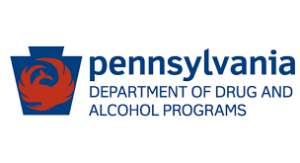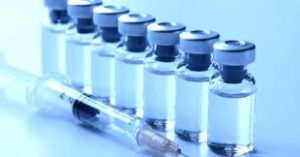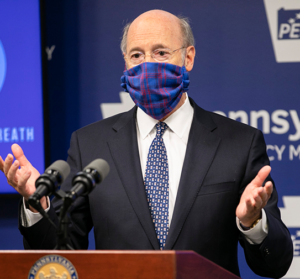PA Health Policy Update for the Week of February 21-25
The following is an update of selected state health policy developments in Pennsylvania for the week of February 25, 2022. (Some of the language used below is taken directly from state documents.)
 General Assembly
General Assembly
The state House Appropriations Committee continued its FY 2023 budget hearings this week and the Senate Appropriations Committee began its hearings this week. Hearings will conclude March 17. A complete schedule of the hearings can be found here.
The Department of Health and Department of Drug and Alcohol Programs are scheduled to appear before the House Appropriations Committee next Thursday, March 3 at 10:00 a.m.
Department of Human Services
The Department of Human Services has issued a Medical Assistance Bulletin to inform Medical Assistance providers about updates related to billing and payment for the administration of monoclonal antibody therapies for the treatment of COVID-19. This bulletin applies to all physicians, certified registered nurse practitioners, certified nurse midwives, outpatient hospital clinics, home health agencies, independent medical surgical clinics, pharmacies, and renal dialysis centers enrolled in the Medicaid program who are authorized to administer monoclonal antibody therapies to Medicaid beneficiaries in the Medicaid fee-for-service delivery system. Providers rendering services in the Medicaid managed care delivery system should address any coding and billing questions to the appropriate managed care organization. Learn more from this Medical Assistance Bulletin.
The Department of Human Services has issued a Medical Assistance Bulletin to inform Federally Qualified Health Centers (FQHC) and Rural Health Clinics (RHC) that it is implementing an alternative payment methodology to pay the Medical Assistance program fee schedule rate for the administration of COVID-19 vaccines during COVID-19 vaccine-only visit for dates of service on and after December 1, 2020 and that it will pay the enhanced Medicaid program fee schedule rate for the administration of those vaccines to homebound Medicaid beneficiaries during vaccine-only visits for dates of service on and after April 1, 2021. Find the bulletin here.
Department of Health
Ninety-five percent of all Pennsylvanians ages 18 and older have had at least one COVID-19 vaccination and 76.2 percent ages 18 and older are now fully vaccinated, the Department of Health reports.
The Department of Health has updated its guidance on when people should receive COVID-19 vaccines and the appropriate intervals between primary doses and between primary doses and boosters. The update is based on recent CDC guidance.
 Department of Drug and Alcohol Programs
Department of Drug and Alcohol Programs
The Department of Drug and Alcohol Programs has announced more than $15 million in grant funding for stabilization payments to substance use disorder treatment providers to assist with pandemic-related expenses. Through 108 grant agreements, 375 substance use disorder treatment provider locations will receive funding. All eligible applicants that applied were awarded funding. Learn more about the purpose of the funding and find a link to a list of organizations awarded grants in this department news release.
The Department of Drug and Alcohol Programs has posted a new FAQ for providers that combines questions from previous American Society of Addiction Medicine (ASAM) level-of-care-specific FAQ documents along with questions received through the ASAM Transition email account and technical assistance meetings with providers and stakeholders. Find the new FAQ here.
COVID-19: By the Numbers
- Daily COVID-19 case counts remain high but fell significantly again over the past week. Pennsylvania’s seven-day average yesterday (February 24) was 2294 cases day; a week ago (February 17) its seven-day average was 3159 cases a day.
- The number of new COVID-19-related deaths also declined again over the past week. Pennsylvania’s seven-day average yesterday (February 24) was 65 deaths a day; a week ago (February 10) its seven-day average was 83 deaths a day.
- The Department of Health reports that the percentage of available adult ICU beds fell from 22 percent to 19.6 percent during the past week and the percentage of available pediatric ICU beds fell from 8.5 percent to 7.7 percent over the same period of time, leaving just 30 unoccupied pediatric ICU beds in the state.
- The Department of Health also reports that approximately 9.9 percent of all staffed adult ICU beds in the state are occupied by COVID-19 patients this week, down from 12.7 percent last week, and that 25.8 percent of all ventilators in the state are currently in use, down from 26.6 percent last week.
- For the first time in recent months, all 67 Pennsylvania counties are not experiencing high rates of COVID-19 transmission: Sullivan County is experiencing a moderate rate of community transmission and Carbon, Delaware, Dauphin, Lehigh, Monroe, and Snyder counties are “only” experiencing substantial rates of community transmission.
- The decline in the number of new COVID-19 cases is reflected in a 65 percent decline since February 1 in the number of Pennsylvanians hospitalized with the virus and a 28 percent decline over the past week. The number of people on ventilators has fallen 60 percent since the first of the month and 23 percent in the past week and the number in ICUs has fallen 63 percent since the first of February and 30 percent over the past seven days.
 Stakeholder Events
Stakeholder Events
DHS – Managed Long-Term Services and Supports Subcommittee – March 1
The Medical Assistance Advisory Committee’s managed long-term services and support (MLTSS) subcommittee will meet virtually on Tuesday, March 1 at 10:00 a.m. Go here to register to participate.
Centers for Medicare & Medicaid Services – RFI on Medicaid and CHIP – March 1
On February 17, CMS published a request for information on access to care and coverage for people enrolled in Medicaid and CHIP. On Tuesday, March 1 at 3:30 p.m. (eastern) the agency will hold a webinar discuss with stakeholders its objectives in issuing the RFI and the process for submitting responses. Go here to register to participate.
Department of Health – Advisory Health Board – March 16
The Department of Health’s Advisory Health Board will meet virtually on Wednesday, March 16 at 2:00 p.m. to discuss programmatic and departmental activities. For information about how to participate, see this Pennsylvania Bulletin notice.
 The Wolf administration has announced the creation of the Long-Term Care Resiliency, Infrastructure Supports, and Empowerment program, or LTC RISE, which seeks to give long-term-care facilities “…the support they need to battle COVID-19, recover, and rebuild.” Under the program, long-term-care facilities can pursue improvement projects in the areas of infection prevention and control and emergency preparedness; building a sustainable outbreak response operation; and promoting professional development and a resilient long-term-care facility workforce. The program is funded by a federal grant and replaces the state’s Regional Congregate Care Assistance Teams program, which expired at the end of 2021. Learn more about LTC RISE from
The Wolf administration has announced the creation of the Long-Term Care Resiliency, Infrastructure Supports, and Empowerment program, or LTC RISE, which seeks to give long-term-care facilities “…the support they need to battle COVID-19, recover, and rebuild.” Under the program, long-term-care facilities can pursue improvement projects in the areas of infection prevention and control and emergency preparedness; building a sustainable outbreak response operation; and promoting professional development and a resilient long-term-care facility workforce. The program is funded by a federal grant and replaces the state’s Regional Congregate Care Assistance Teams program, which expired at the end of 2021. Learn more about LTC RISE from  Department of Human Services
Department of Human Services Department of Health
Department of Health General Assembly
General Assembly Department of Health
Department of Health COVID-19: By the Numbers
COVID-19: By the Numbers Pennsylvania Health Care Cost Containment Council (PHC4)
Pennsylvania Health Care Cost Containment Council (PHC4)


 Governor Wolf
Governor Wolf General Assembly
General Assembly